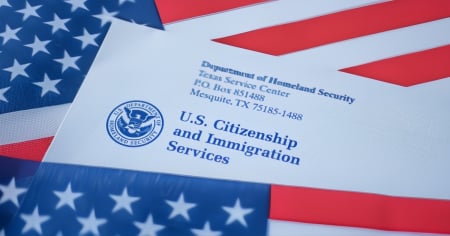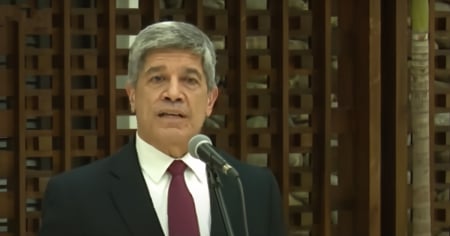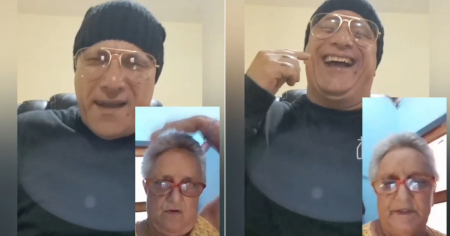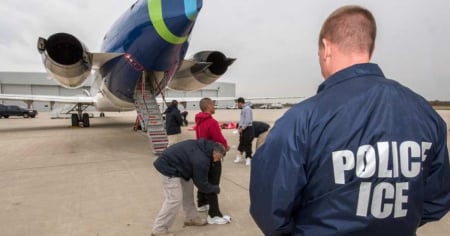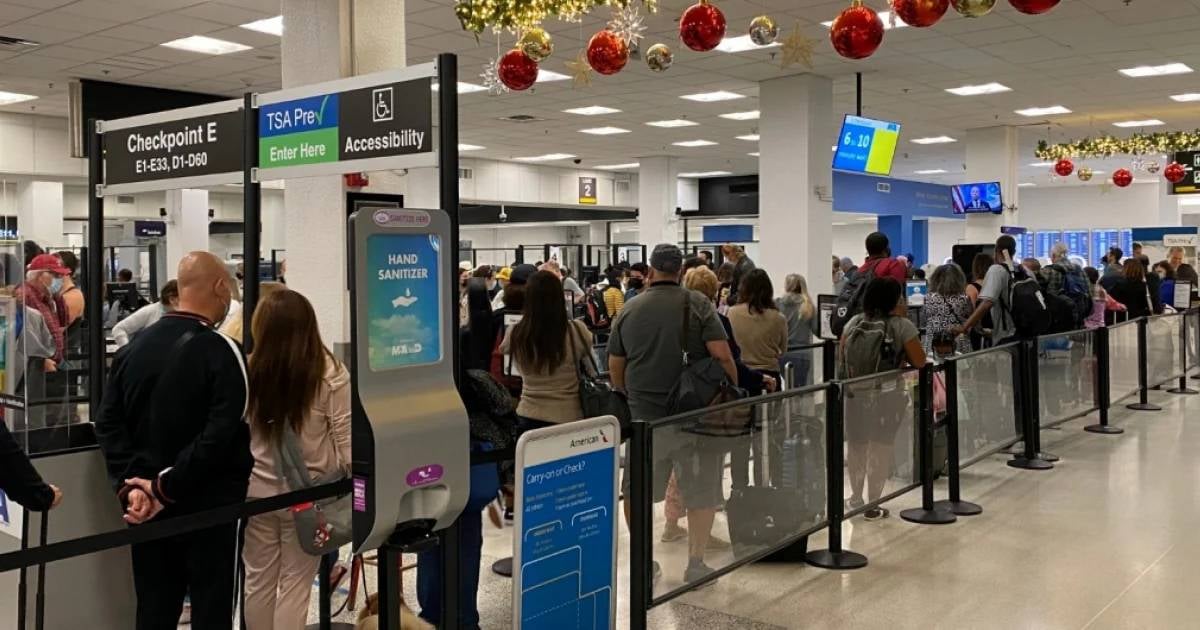
Related videos:
The humanitarian parole program, which since its implementation for Cubans in January 2023 has allowed the legal entry of over 110,000 individuals from the island into the United States, is facing a critical moment.
According to recent statistics from the Customs and Border Protection (CBP), only 50 permits were approved under this initiative in November, none of which were for Cuban applicants, according to a report by Telemundo. These figures have created uncertainty among migrants and raised questions about the future of the program.
This significant decline is an indication that the program is nearing its end, raising concerns among those who had found a safe and legal alternative to enter the country.
A program on pause: the statistics speak
Of the permits approved last month, 30 were for Haitians, 10 for Nicaraguans, and 10 for Venezuelans. For Ángel Baullosa, developer of Immigreat Case Tracker, a tool that monitors the progress of the program with data from over 368,000 users, the situation is worrisome.
"We have hardly seen any movement, as if the program were frozen. What the government has just confirmed was an open secret," Baullosa stated.
Before its temporary suspension in August due to alleged fraud cases, the parole was processing between 200 and 300 approvals daily. Currently, the records show a drastic change: zero approvals and between 80 and 90 denials each day. Even previously approved cases are now being rejected, while thousands of families are waiting for answers.
What will happen with parole in 2024?
The uncertainty surrounding the program is exacerbated by Donald Trump's promises to eliminate it when he returns to the presidency on January 20.
In statements to the aforementioned channel, immigration attorney Rosaly Chaviano noted that while a suspension of the program would not automatically affect permits that have already been granted—those already present in U.S. territory—"the president could sign an order to revoke their validity."
In this context, Chaviano advises parole beneficiaries to explore other avenues for legalizing their status, such as asylum, a work visa, or a family petition. For Cubans, the Cuban Adjustment Act remains a key option, as it allows for permanent residency after one year and one day in the country.
The failure to meet the promised goals
The program had been announced with the commitment to grant 30,000 visas per month, a goal that has not been met since its launch. Although U.S. authorities acknowledge that the parole has reduced illegal crossings at the southern border by 98%, they have not provided explanations for the sharp decline in recent approvals.
Meanwhile, thousands of applicants, especially Cubans, are experiencing a mix of frustration and hopelessness. With the clock ticking toward a potential political change in the White House, the humanitarian parole, which was once a gateway for thousands of families, seems to be running out of time.
The total accumulated under the program stands at 531,670 migrants with approved paroles, reflecting the measure's impact, although it now seems to have a limited future.
Frequently Asked Questions about Humanitarian Parole for Cubans and Other Migrants
Why does humanitarian parole face an uncertain future?
The humanitarian parole faces an uncertain future due to the drastic decrease in the number of approvals and Donald Trump's promises to eliminate the program when he takes office in January 2025. Approval figures have dropped significantly, and the situation is further complicated by the possibility that the new administration will change current immigration policies.
How has the decrease in approvals for humanitarian parole affected Cubans?
The decrease in humanitarian parole approvals has created uncertainty and frustration among Cubans hoping to enter the United States. Since November 2024, no new paroles have been approved for Cuban applicants, leaving thousands of families in a migratory limbo, unsure if they will be able to benefit from the program.
What alternatives do Cubans in the U.S. have if humanitarian parole is eliminated?
Cubans who are already in the United States may consider alternatives such as applying for permanent residency under the Cuban Adjustment Act. This law allows individuals to obtain residency after one year and one day in the country. They can also explore options like political asylum or an employment visa, depending on their personal circumstances.
What measures have been implemented to control fraud in humanitarian parole?
Stricter security measures have been implemented, including rigorous scrutiny of sponsors through biometric and biographical analysis. These measures aim to ensure that beneficiaries of humanitarian parole are properly evaluated, following the detection of significant cases of fraud in the process.
Filed under:

